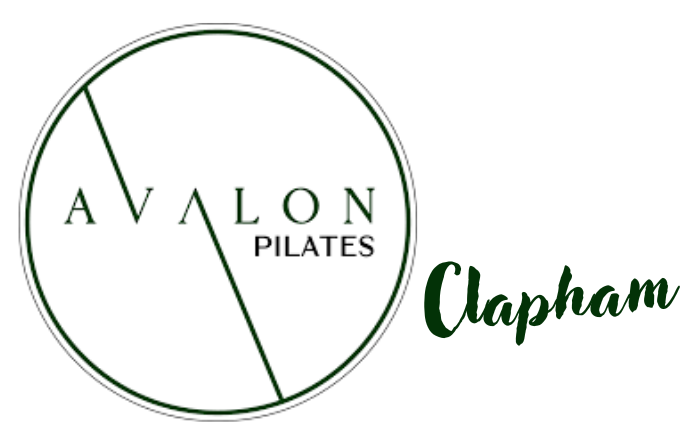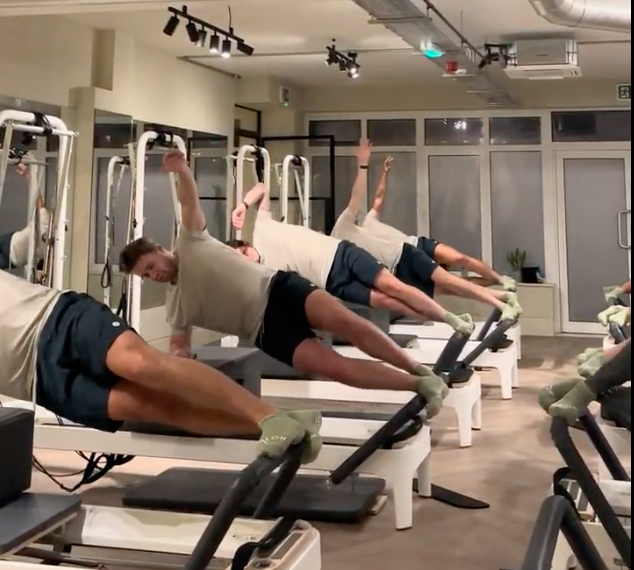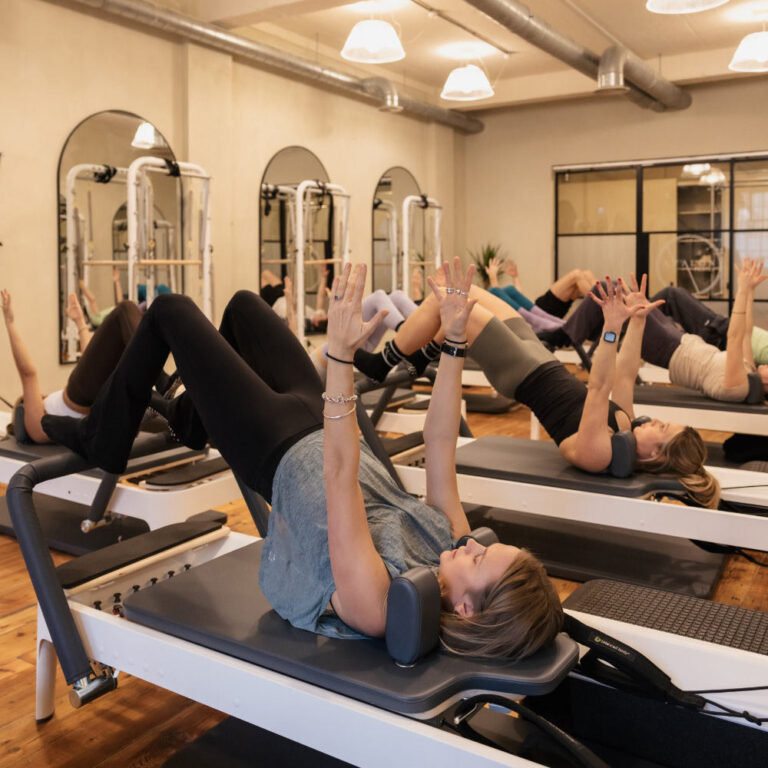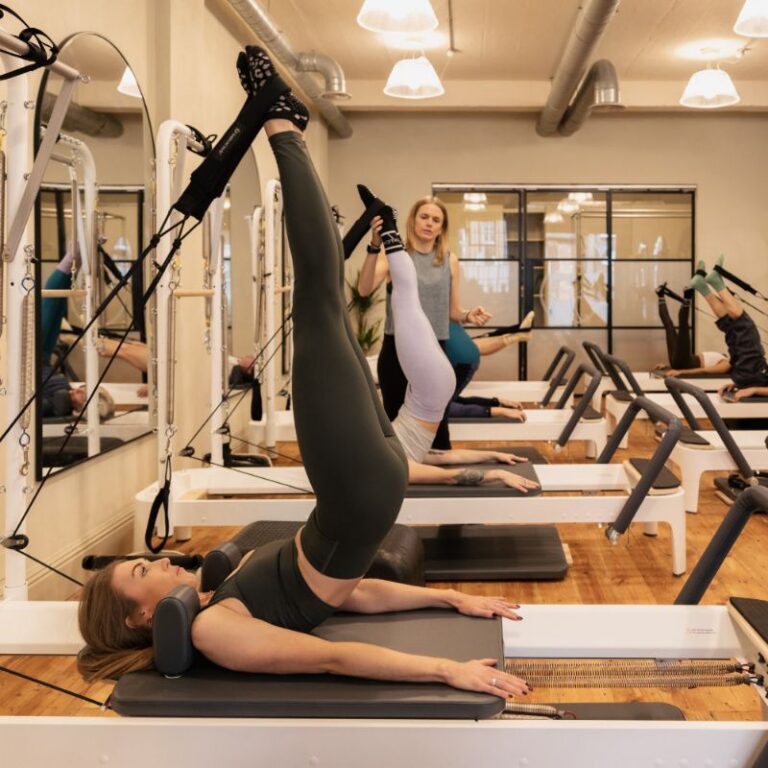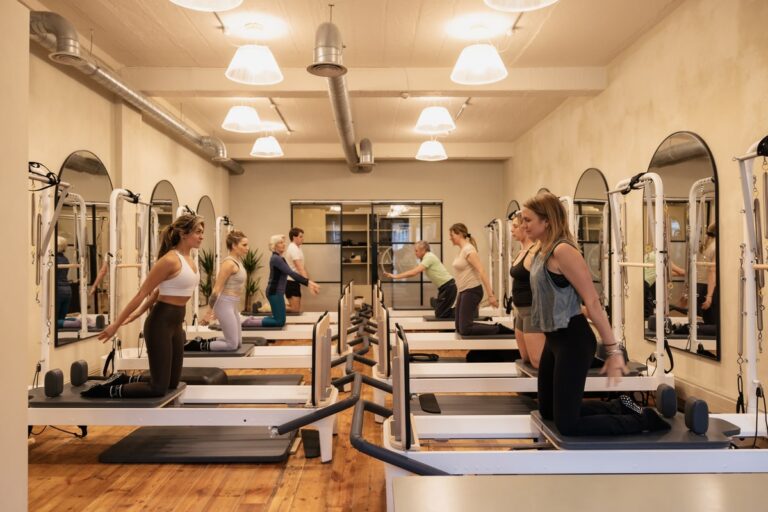Pregnancy is a time of immense change and anticipation. During these months, staying active and maintaining a strong, flexible body can make a world of difference for your comfort and health. If you’re considering reformer Pilates as part of your prenatal fitness routine, you might be wondering if it’s safe and beneficial.
Let’s explore how Reformer Pilates can support your pregnancy and what precautions you should take.
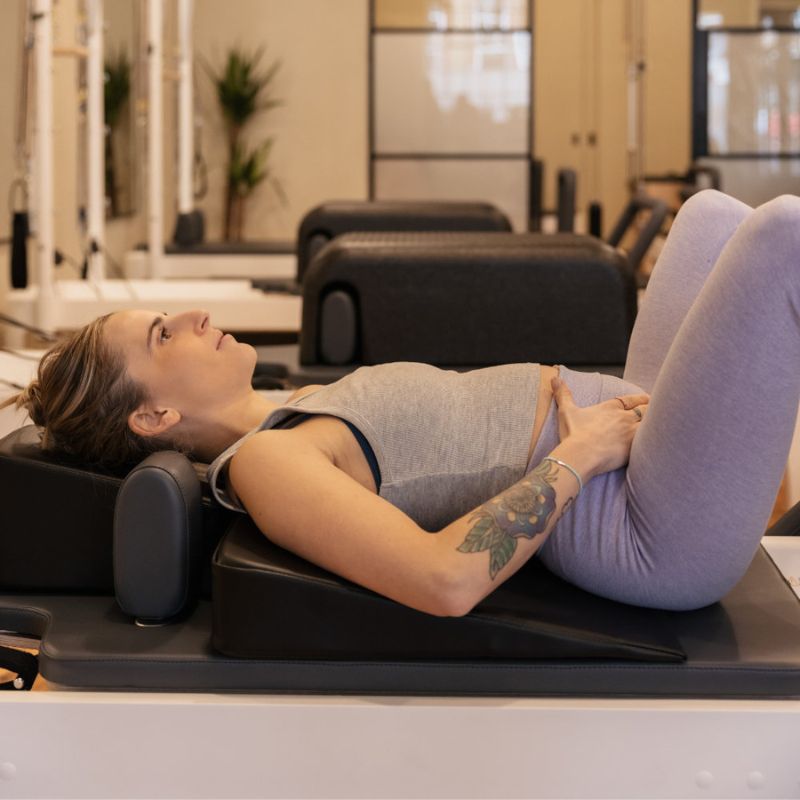
Benefits of Reformer Pilates During Pregnancy
1. Builds Strong Muscles
Reformer Pilates focuses on building core strength and toning muscles, which is crucial for supporting the increasing weight during pregnancy. Strong muscles, particularly in the abdomen and lower back, can help alleviate common discomforts and make daily activities more manageable.
2. Enhances Flexibility
The gentle stretching and controlled movements in reformer Pilates enhance flexibility, easing tension in your body as it adjusts to the changes brought by pregnancy. This flexibility can also help prepare your body for labor and delivery.
3. Improves Posture
Good posture is essential during pregnancy to avoid back pain and other discomforts. Reformer Pilates exercises are designed to strengthen the muscles that support proper posture, helping you maintain better alignment as your baby grows.
4. Promotes Better Balance and Coordination
Pregnancy can affect your balance and coordination due to the shifting of your center of gravity. Reformer Pilates helps improve these skills, reducing the risk of falls and making you feel more confident in your movements.
5. Supports the Pelvic Floor
Strengthening the pelvic floor is vital for easier labor and postpartum recovery. Reformer Pilates includes exercises that specifically target these muscles, providing you with the support needed for a healthy pregnancy and beyond.
Precautions for Pregnant Women Doing Reformer Pilates
While Reformer Pilates offers numerous benefits, it’s essential to follow certain precautions to ensure your safety and that of your baby:
Consult Your Healthcare Provider
Before starting or continuing with any exercise program, including Reformer Pilates, always consult with your healthcare provider. They can provide personalized advice based on your medical history and current pregnancy status.
Inform Your Instructor
Make sure your instructor knows about your pregnancy so they can tailor the exercises to suit your needs and limitations. A knowledgeable instructor will guide you through safe and effective movements.
Avoid Overexertion and Overheating
Overexertion and overheating can be harmful to you and your baby. Listen to your body, and don’t push yourself too hard. Take breaks as needed and stay cool.
Steer Clear of Certain Positions
Avoid exercises that require you to lie flat on your back for an extended period, particularly after the first trimester. This position can lead to supine hypotensive syndrome, which reduces blood flow to your baby.
Focus on Controlled Movements
Perform movements slowly and with control to avoid sudden or jerky motions that could strain your muscles. Controlled movements also help you engage the correct muscles and get the most benefit from the exercise.
Pay Attention to Your Body
If you experience any discomfort, pain, or dizziness, stop the activity immediately. Your comfort and safety are paramount, so never ignore signals from your body.
Stay Hydrated and Nourished
Ensure you stay hydrated throughout your workout and maintain a balanced diet to support your prenatal exercise routine.
Testimonials
Many pregnant women have found Reformer Pilates to be a valuable addition to their prenatal fitness routine. Here’s what one enthusiastic mom-to-be had to say:
“I did the pregnancy Reformer class and was so impressed, it was definitely the best prenatal workout class I’ve done throughout my pregnancy! The instructor was friendly, skilled, and kept us moving at a good pace with moves that were challenging, while also building in good opportunities for stretching and catching our breath throughout.”
Conclusion
Reformer Pilates can be an excellent way to stay fit and healthy during pregnancy. By building strong muscles, enhancing flexibility, improving posture, promoting balance, and supporting the pelvic floor, this form of exercise offers many benefits. However, it’s crucial to follow the recommended precautions and listen to your body.
Stay active, stay healthy, and enjoy the beautiful journey of pregnancy!
